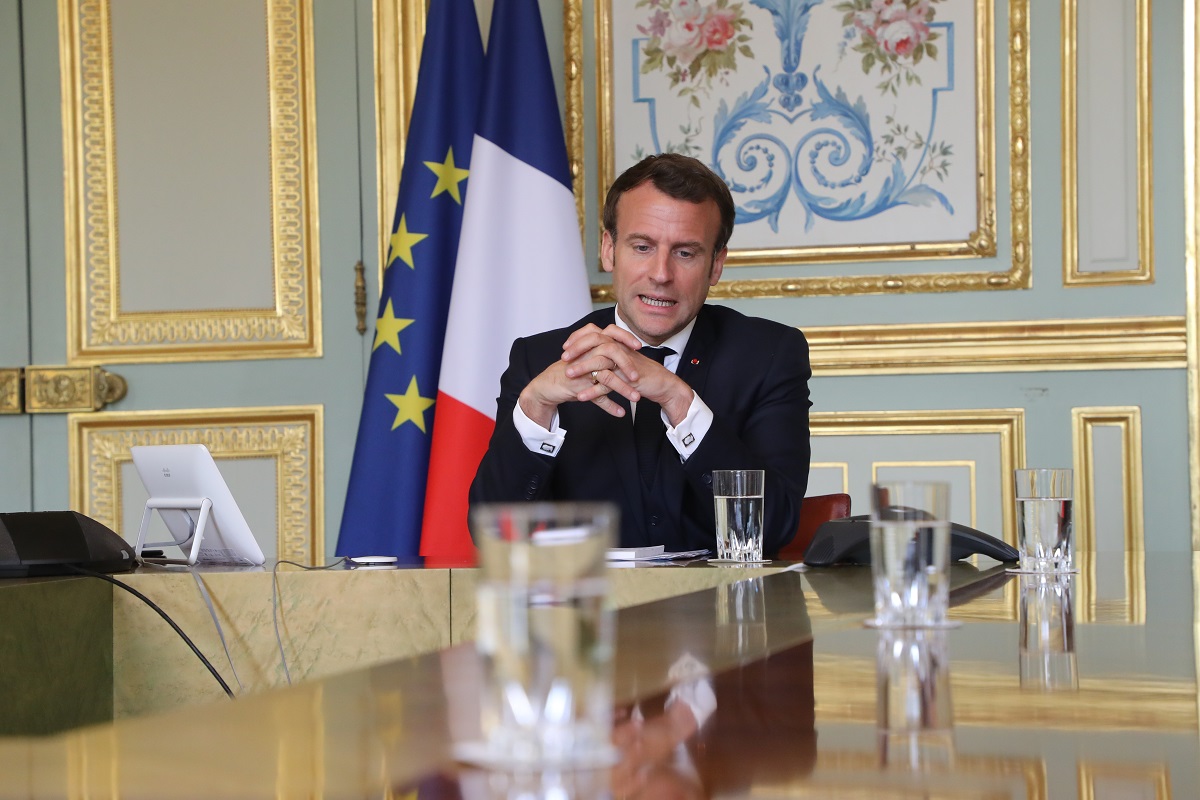PM to attend AI Action Summit in France next month
Prime Minister Narendra Modi on Monday confirmed that he will visit Paris on February 10-11 to attend the Artificial Intelligence (AI) Action Summit being hosted by France.
But by declaring war on Islamic separatism, and choosing a conservative to lead his campaign, President Emmanuel Macron might have bitten off more than France might enjoy chewing in terms of responses from the Muslim world.

French president Emmanuel Macron (Photo: AFP)
France might like to believe that its President’s declaration of war on what he called “Islamic separatism” was a response to a local problem, one that was caused by two actions ~ the first a decision by a schoolteacher to show cartoons of Prophet Mohammed to his students and the second his beheading by a Muslim incensed by an act almost all his co-religionists would deem blasphemous.
It is well known that imagery is proscribed in Islam and while the teacher’s slaying might seem a disproportionate response, it must be admitted that French notions of liberty are deemed offensive by some sections of its own society. But by declaring war on Islamic separatism, and choosing a conservative to lead his campaign, President Emmanuel Macron might have bitten off more than France might enjoy chewing in terms of responses from the Muslim world.
Advertisement
Overriding historical and sectarian differences, Muslims around the world have reacted with fury to Mr Macron’s statement, with protests flowing from Turkey, Pakistan, Bangladesh, Kuwait, Saudi Arabia and a host of other nations. Turkish President Recep Tayyip Erdogan went as far as to tastelessly say Mr Macron needed mental treatment, asking “What problem does this person called Macron have with Islam and Muslims?”
Advertisement
These remarks have been widely condemned, most recently by India which rebuked Mr Erdogan in sharp terms. The Turkish leader was quickly followed by Pakistan Prime Minister Imran Khan who accused Mr Macron of deliberately provoking Muslims and encouraging “the display of blasphemous cartoons”. Already, the controversy has sparked a diplomatic row with France having recalled its ambassador to Ankara.
But it is the backlash that will hurt French businesses that ought to worry Paris. Already, Mr Erdogan has called for a boycott of French goods in his country. Kuwait’s cooperative stores have withdrawn all French goods from shelves.
In Saudi Arabia, a hashtag calling for the boycott of supermarket chain Carrefour drew a huge response. And in Bangladesh, tens of thousands of people marched towards the French embassy in Dhaka calling for a boycott of French goods. There have been reports of protests and boycott calls in several other Muslim-majority nations, and already France has been forced to issue warnings to its citizens living there.
The consequences of the controversy fanned by Mr Macron, though, will be felt most in moderate Muslim countries, for their leaderships will find themselves forced into a corner by hardliners. The other, and greater risk, of course, is that it will provide fodder to extremist groups such as ISIS that milk the “threat to Islam” theme.
While France has asked its European allies to take measures against Turkey for the remarks on its President’s mental health, and the EU Commission has warned that Turkish membership of the grouping is further away than ever, these measures will provide scarce reassurance to ordinary citizens of the world who will be caught in the crossfire between French notions of liberty and the Muslim world’s anger.
Advertisement